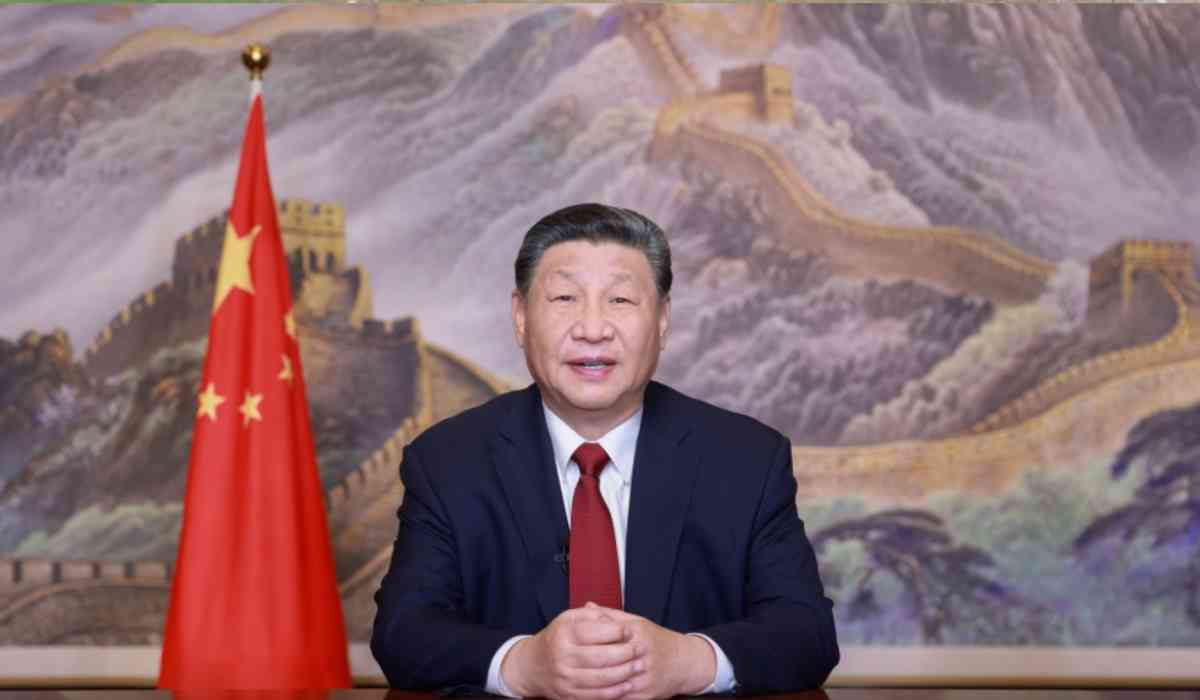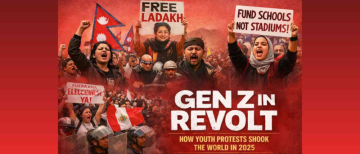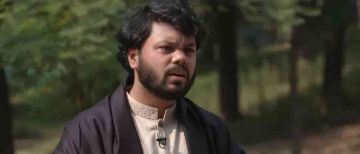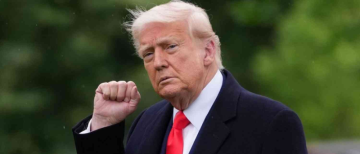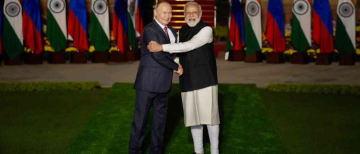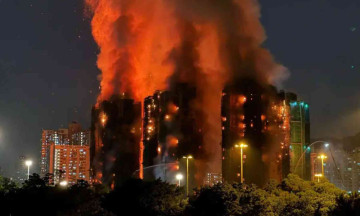In his New Year speech, Xi Jinping said that the reunification of China with Taiwan is inevitable and has increased military pressure on the island. He warned the allegedly independent movements that Beijing would not allow them to continue, which is quite the opposite of what Taiwan’s government wanted.
Chinese President Xi Jinping paid great attention to the reform of global governance and reassured the people on the economy saying that China has actively dealt with the effects of the new environment within and outside China.
Speaking in front of thousands of people in Shanghai on Tuesday, China’s President Xi Jinping said that nobody can prevent China from reunifying with Taiwan, warning those in Taiwan and around the world who support independence for the island.
In the past year, China has been ratcheting up military pressure on Taiwan, with warships and planes probing the waters and skies around the island. Taiwanese officials describe this as a step-by-step process to “mainstream” China's military close to Taiwan’s shore.
China has a political claim to Taiwan, although Taiwanese people exercise their freedoms and elect their leaders in free fundamental elections. It asserts that only the Taiwanese can make decisions as to what their island will be and that Beijing must accept their verdict.
“Both the people on the mainland of China and those across the Taiwan Strait are of the same stock. Amenities cannot cut our family ties, and no one can obstruct the process of national reunification in history”. said Xi, in the speech aired live on State television China Central Television
A large screen shows Chinese President Xi Jinping delivering a speech ahead of the New Year’s Eve celebrations in Beijing on December 31, 2024. (AFP)
Last year in his New Year speech Xi announced that China would reunify with Taiwan and that the people on both sides of the Strait “should feel share responsibility and pride for the cause of the great rejuvenation of the Chinese nation.”
It has continued to be a volatile year in the flashpoint Taiwan Strait, especially after Lai Ching-te, who was viewed by Beijing as a separatist, assumed the presidency of Taiwan in May.
Taiwan President-elect Lai Ching-te, of the Democratic Progressive Party's (DPP)
Several days ago, China summoned a big flexing of naval forces around Taiwan and in the East and South China Sea after which Lai went to Hawaii and GUAM in the Pacific Region criticizing China.
China, which has not ruled out the use of force to reunify Taiwan, conducted two exercises around Taiwan this year, with Beijing saying they were to deter ‘separatist activities and more would be taken if necessary.
“Taiwan and Mainland China are two regions constantly emphasizing the common Taiwan compatriots. No force on this earth can ever break the bond of family, and no force on this earth can ever halt the process of national integration.”
Others have also included the sale of arms to Taiwan which is Illegal given the Taiwan Relations Act but has also continued to greatly stress Beijing’s relation with Washington. China has continuously threatened the U.S. on the issue of Taiwan's military ties and has blacklisted military exporters and their chiefs.
Read about Taiwan's Background and U.S. Relations: https://crsreports.congress.gov/product/pdf/IF/IF10275#:~:text=to%20the%20status%20quo%20from,both%20sides%20of%20the%20Strait.
Read about An American perspective on the role of Taiwan in US-China relations:
He said Taiwan will be reunified with China and that the Chinese people should not worry about the economy, which has worsened due to COVID-19.
Xi was speaking during the 2025 New Year speech aired on China Central Television.
“We Chinese from Taiwan and China are the same people for Taiwan is part of China. There is nobody in this world who has the power to break this relation of blood which we share.”
On foreign policy
Xi, who holds his third five-year term, reasserted China’s determination and efforts to pursue international governance and share development experiences as well as enhance international order for world peace and stability.
“As a responsible major country in a process of both development and change, China is advancing reform of the global governance system and enhancing solidarity and cooperation among the countries of the South,” he continued.
On China's Economy
Furthermore, Xi Jinping stressed that China has been proactive in addressing the effects of the changing environment within and outside of the country.
China has indeed seen new types and forms of new quality productive forces in line with actual conditions along with new sectors and models”, said the Chinese president highlighting new productive forces like E-Vehicles.
China’s economy by all indicators is on the recovery path and may soon hit the 130-trillion-yuan (USD 18.08 trillion) mark in 2024. It has also stated that the grain output has passed 700 million tonnes, he said.
Remain confident
Xi then urged it to continue boosting its confidence in addressing the challenges.
At the beginning of the year 2025, we will finish the building of the 14th Five-Year Plan and put into practice more active and efficient measures. And as always, we develop in wind and rain, and we survive in difficult periods. We must be confident.”
Read about China’s 14th Five-Year Plan:
Support for economy
On the other hand, during the New Year's Eve speech to the National People’s Congress the top policymaking body, Xi unveiled the official end to the COVID-19 lockdown and reinforced the pledge to support the economy through 2025 and repeated appeal for more favourable macroeconomic policies.
Read about the Macroeconomic Policies of China: http://www.pbc.gov.cn/english/130724/2829871/index.html
A Brief History of China and Taiwan
China and Taiwan are divided by Taiwan Strait - a channel that extends from the South China Sea to the East China Sea.
Read about the Taiwan Strait & Median Line: https://unacademy.com/content/prelims-bits/taiwan-strait-and-median-line/
Read about: https://www.cfr.org/backgrounder/china-taiwan-relations-tension-us-policy-biden
Graphics: China was for a few years a democratic country before the communist revolution by the Communist Party chairman Mao Zedong. Till 1949 there were three President’ in what was then popularly known as the Republic of China which is now officially known as Taiwan. Mainland China became the Republic of China in 1912 after the defeat of the Qing dynasty of which the last reigning dynasty was Manchu. This put an end to imperial China.
Four governments were established in China between 1912 and 1949; The Provisional or the first Chinese government in 1912; the Beiyang government from 1912–1928; the Nationalist government from 1925–1948; and the Constitutional government from 1948–1949. Manyama opines that the civil war in China brought an end to the Constitutional government. The government was overthrown in a crushing revolution by the People’s Republic of China Communist Party under the leadership of Chairman Mao Tse Tung later spreading to both Tibet and Xinjiang. To avoid this the constitutional government was forced to run to Taiwan.
Between the mid-1927 and the late 1930s, the Kuomintang unified what was originally China (except the current occupied Tibet and region of Xinjiang [the East Turkestan Republic of China] in the west, and the Soviet-controlled Manchuria in the east similarly divides China from rest of Russia and Mongolia and modern-day North Korea). The Russo-Japanese War meant that Russia lost control of the southern part of Manchuria in 1905 while all of Manchuria fell into Japanese hands in 1931. After that, in World War –II Japan attacked China.
The Kuomintang Party was headed by Chiang Kai-shek, elected President of the Republic of China till the civil revolution by Mao Zedong forced him and his Kuomintang party to escape to Taiwan in 1948 and officially established a government in exile in 1949. Until 1971 the United Nations established relations with Chiang Kai-shek’s government as the legal representation of China. It was the Republic of China or Taiwan under Chiang Kai-shek who first received a permanent seat in the UN Security Council.
Taiwan is a democratic country as of today, however, most countries in the world do not recognize Taiwan because the People’s Republic of China doing so puts pressure on them – the PRC was led since 1949 by Chairman Mao’s party and is currently led by Xi Jinping.
With inputs from agencies
Image Source: Multiple agencies
*The views expressed are personal to the author and do not reflect the platform's opinion of the same.
© Copyright 2024. All Rights Reserved Powered by Vygr Media.
Author's Profile
Manish Kumar pursued a master’s degree in journalism and mass communication from Amity University, Haryana. He is an enthusiastic and dedicated writer, who has worked with several ministries of the Government of India and contributed his voice to major campaigns and programmes. Being devoted to practicing significant journalism, Manish does his best to become a voice of change in society. Not only does he tell but also persuade, which is indicative of his strong conviction in the perspective of media.

